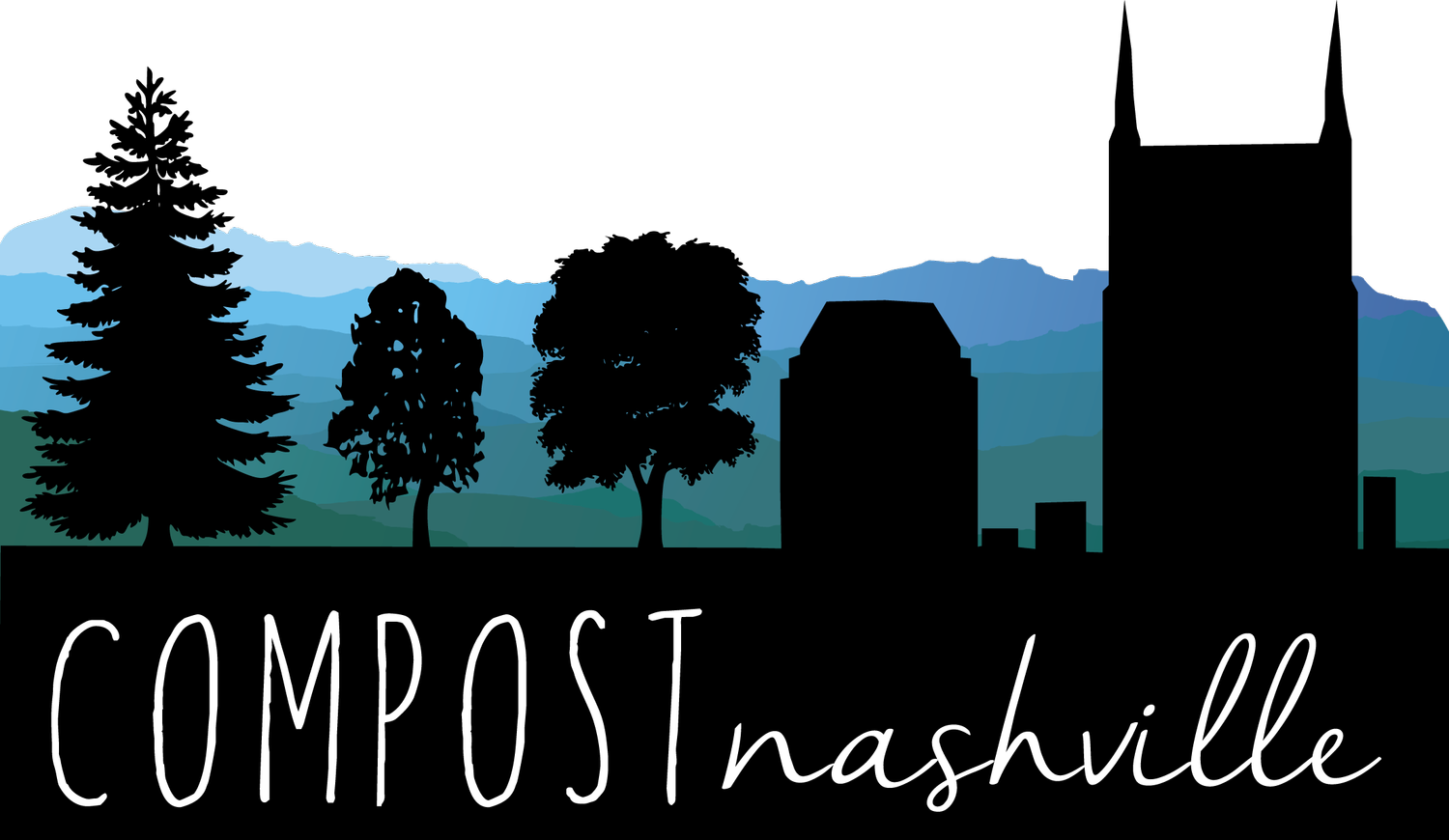How to Host a Sustainable, Zero-Waste Event in Nashville
Hosting an event in Nashville? Use these 5 Steps to make it more sustainable.
So you’re planning an event. Maybe it’s a wedding, a corporate event, a nonprofit fundraiser, a concert series, a craft festival, or a neighborhood block party, and you want to make it as sustainable as possible. You might even be aiming to go completely zero-waste. Whether you're just starting to plan or are adding sustainable touches late in the game, these 5 proven tips can help you create a more sustainable event. Keep in mind that each of these steps follows a cyclical mindset - consider where your materials are sourced, how they will be used, and what happens to them once your event is over.
1. Audit and Source Serveware Materials
Take a look at your supply list and identify anything that's single-use. Can it be replaced with a compostable or recyclable option?
Consider adding language in your vendor contracts that any disposable items (for example, plates, cups, napkins, and utensils) must be either commercially compostable or recyclable. A few options to consider would be BPI-certified containers, aluminum cans, glass, and cardboard. Try to eliminate single-use plastics wherever possible.
This not only sets the tone for a more responsible event, but it can also reduce trash hauling fees and open up your budget to include services that don’t send material to the landfill.
2. Partner With a Local Waste Diversion Team
Hiring a composting or recycling company for your event works similarly to traditional waste services, but with a much more positive outcome. Search terms like “event composting in Nashville” or “event recycling near me” can help you find providers who offer:
Bin rentals for compost and/or recycling
Clear signage to guide attendees who may be less familiar with sorting their waste
Staff to help prevent contamination at waste stations throughout the event
Post-event diversion data so you can report your impact (great for sponsors!)
Note: This step is important, especially if you’re going to audit and source sustainable materials. If those compostable and recyclable single-use items are sent to a landfill anyway, they won’t be composted or recycled, and it defeats the purpose.
Compost Nashville makes composting easy for events of all sizes. From backyard weddings to multi-day festivals, we provide bins, signage, service, and post-event reporting. All food waste and compostables we collect are turned into nutrient-rich compost right here in Middle Tennessee. Get in touch with our team today to learn more about our event composting services.
3. Engage and Educate Your Guests
Even with the right bins in place, attendees need to know how and why to use them.
Share reminders from the stage, as guests enter, and/or via your event app.
Use signage at check-in to say: “We’re composting at this event! Look for the green bins for food scraps and compostable containers.”
Promote your event’s sustainability ahead of time on social media and to your email list. It may even boost attendance from eco-conscious guests.
Pro tip: Some composting services (like us!) offer staff to assist at waste stations and answer real-time questions. This not only improves diversion rates but also makes a lasting impression on your guests.
4. Hire a Sustainability-Focused Event Planner
Even if the to-do list is long (which it often is for events), don’t let sustainability slip through the cracks. A sustainability coordinator or eco-conscious event planner can:
Integrate waste diversion into your vendor planning
Coordinate with local composting and recycling services
Develop communications around your efforts
Help you reach zero waste goals without adding more to your plate
Hiring a pro can save you time, avoid greenwashing, and help ensure your values are reflected in every detail.
5. Celebrate Your Impact
After the event, remember to celebrate what you accomplished! Share your diversion stats, guest feedback, and photos of your composting and recycling setup. Implementing sustainability during your event ensures the lasting impact after the event is positive, giving local compost to farmers, recycling to prevent mining, and making sure food waste isn’t producing methane in the landfill are long-lasting wins following a short-term event.





